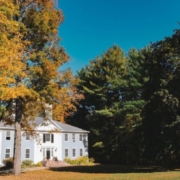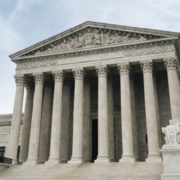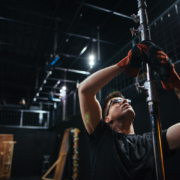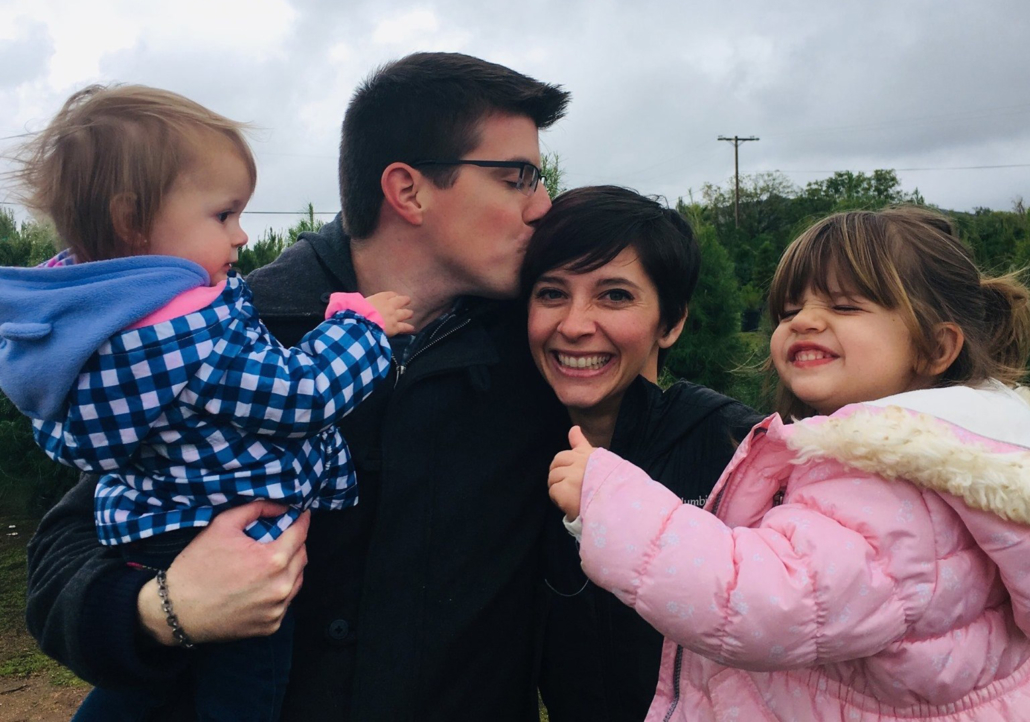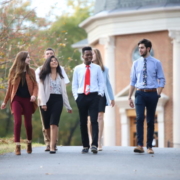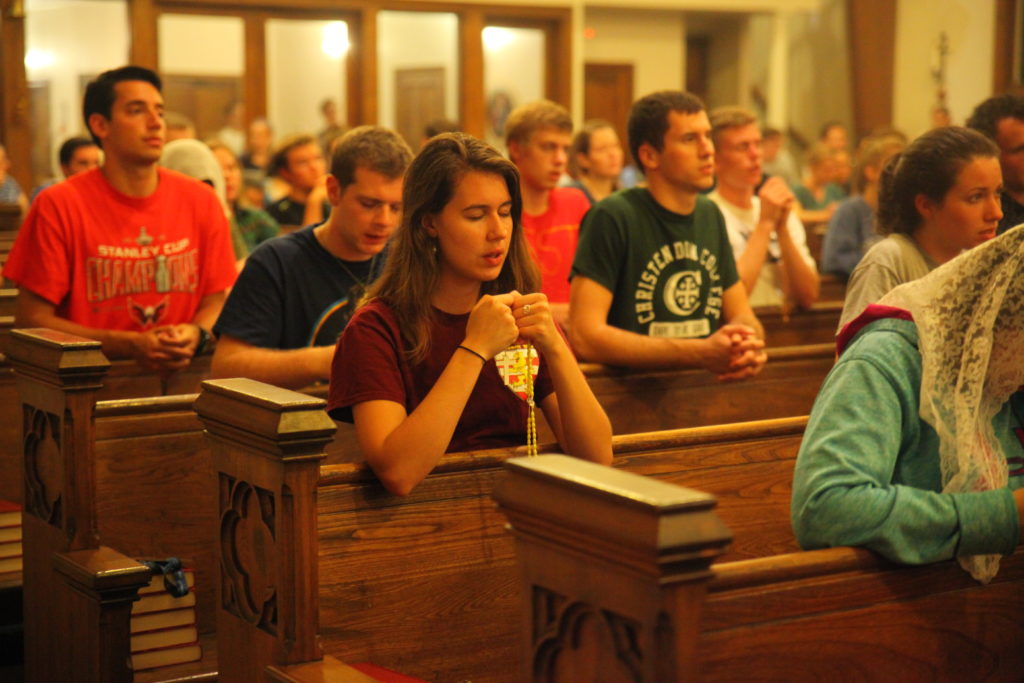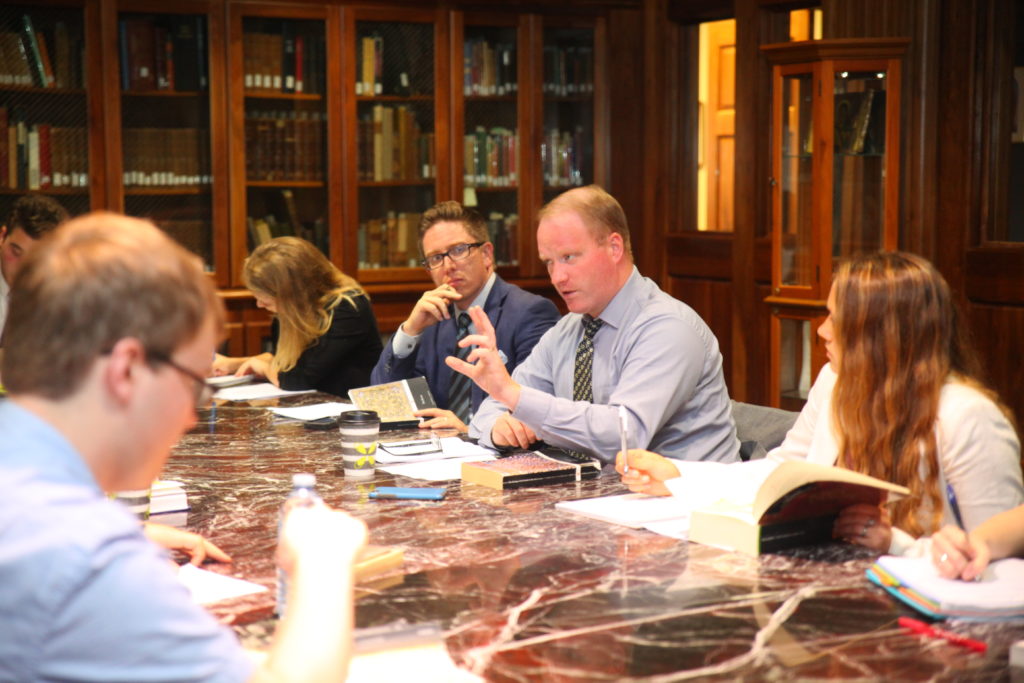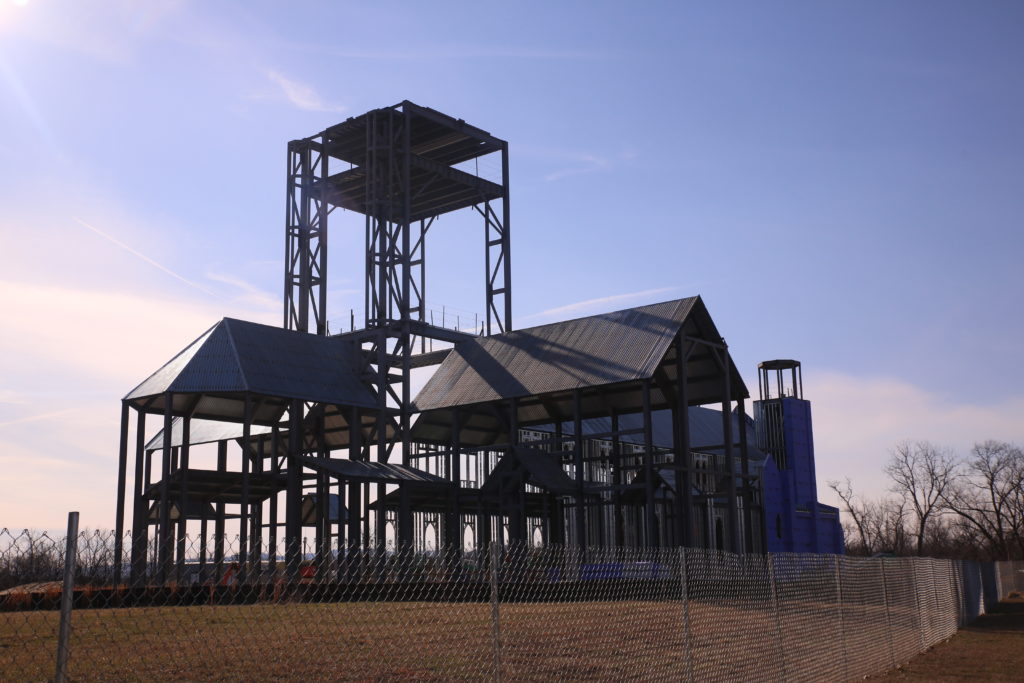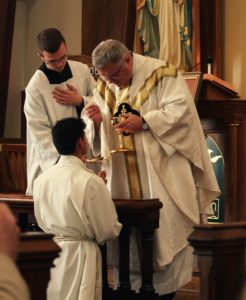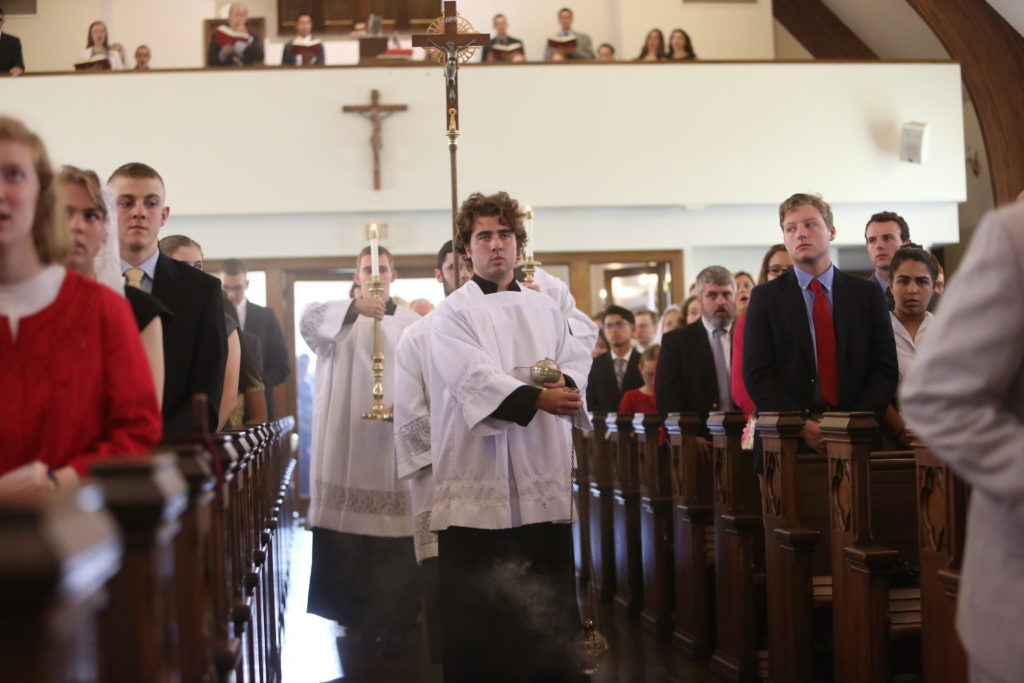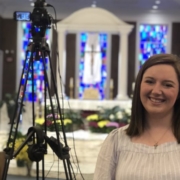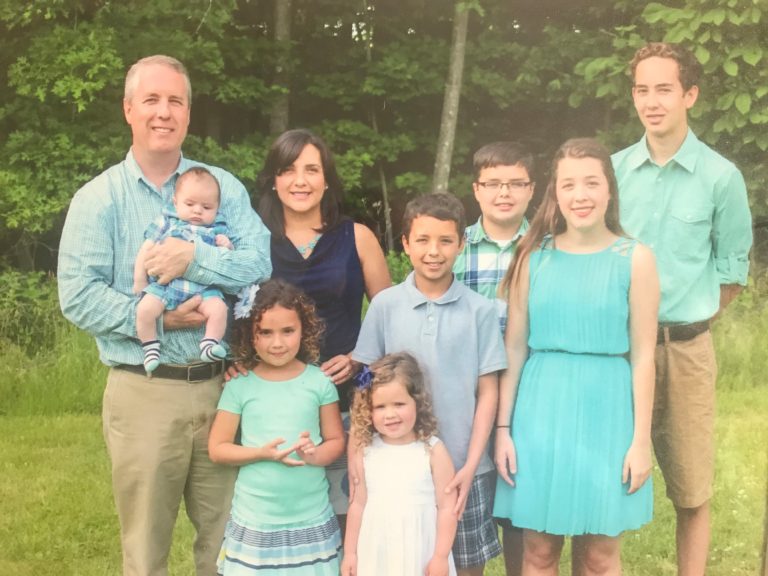For students and educators, these are difficult times. But in hard times, Catholics shine — and that’s certainly true now for Catholic schools.
Across America, most schools have adjusted to the COVID-19 shutdown by shifting to distance learning via webinars and emails. While this may suffice for teaching basic facts and skills, Catholic educators are striving to do more. The best Catholic education goes well beyond worksheets and quizzes — it provides formation for life and beyond.
“Learning is simply not a transactional endeavor,” says Derek Tremblay, headmaster of Mount Royal Academy in Sunapee, New Hampshire, which is one of the schools recognized by the Cardinal Newman Society’s Catholic Education Honor Roll for their strong Catholic identity.
“Instead of putting teachers and students in front of devices for hours upon hours, we are inviting students to pause, pray and ponder,” Tremblay says. “If we are to become who God made us to be, we have to be willing to think more deeply about meaning and moments.”
Such is what makes Catholic education special, whether in the classroom or over the internet: forming students in faith, virtue and wisdom, not just knowledge. A devotion to truth, both discovered by man and revealed by God. A Christian community of people who truly care for students’ entire well-being—mind, body and soul.
“The toughest question to answer in this odd reality of remote learning is the most rudimentary: is this exercise meaningful?” asks Tremblay, who warns of the limitations of Zoom instruction. “We are meant for personal encounter. There is so much to be lost if all we do right now is mimic the misplaced urge to move along, cover curriculum and gather grades.”
Opportunity for Reflection
That’s why many faithful Catholic schools have made changes during this time of social distancing that are substantially different from other schools.
Students’ days are no longer filled with direct interactions with teachers and classmates, community prayer and Sacrament, and after-school events. It is in classroom dialogues and group activities when Catholic schools are at their best, teaching and witnessing to Christian ideals. So Catholic schools are adapting and finding ways of “keeping it Catholic” while students are far apart, without letting education decline into cold remote lectures and tedious homework.
One excellent innovation is Mount Royal Academy’s new, weekly essay assignment for students, which isn’t focused on mastering content but encourages students to reflect more deeply. One essay prompt asks students to reflect on which virtues have been the most challenging for them to exercise lately, noting that “virtue is grown during challenging times.” Another prompt asks students to reflect on both the social and individual nature of education, since students have transitioned to at-home learning.
With just this simple assignment, students are finding meaning in their current circumstances. A seventh-grade student writes that he has learned the value of “having a slower lifestyle, because there are fewer distractions which allow for more personal reflection.”
“Having faith in the Lord gives us hope when we need it most,” he writes. “I have certainly gained a new perspective on life through this experience. Overall, I feel blessed for what I have and hope we are stronger after this is over.”
A ninth-grade student writes that he has found himself “not only doing things differently, but also thinking about things from a different perspective.” He has found time to practice playing the piano, connect with siblings who are away from home, and even read the Gospels. “So far I have finished the whole Gospel of Matthew and half of the Gospel of Mark.”
Formation of Mind, Body and Soul
At another faithful Catholic school — Saint Theresa Catholic School in Sugar Land, Texas — leaders are finding ways to engage students from a distance.
One of the “distinctive aspects” of the classical Catholic education at St. Theresa “has always been direct student engagement with topics in ways that augment physical, auditory and visual stimulation,” says Headmaster Mark Newcomb. The COVID-19 pandemic has inspired a new method of integrating the senses, through a collaboration between Latin class and physical education.
“For the past few weeks, students are sent a video that opens with both a vocal recited prayer and a Latin chant that highlight the life of one of the saints, before introducing physical activities that are described in Latin terminology,” Newcomb explains.
“Students strive to master Latin vocabulary through total physical response, performing leaps while reciting saltus (leap) several times in a row. Mini-workouts follow the vocabulary drills, complete with timed rests between kicks, pushups, etc.,” he says.
The new initiative developed by the school’s talented faculty has been well-received by parents, Newcomb says. “How helpful to exercise the mind and the body at once, for the benefit of both, while reflecting on the heritage of our faith.”
Creative Solutions
At Everest Collegiate High School and Academy in Clarkston, Michigan, teachers are going above and beyond their regular catechism courses for students. They are also providing resources and ideas for students and parents to use with each other to engage in the faith, taking advantage of the increased time that families have together at home.
“These resources and initiatives are being provided to the families each week, allowing them to learn together, to pray together and to share back their photos in solidarity,” says Everest Headmaster Greg Reichert.
“During Holy Week, for example, Everest families had the opportunity to participate in a ‘Walk the Walk’ challenge during which they were guided through the process of preparing Stations of the Cross within their homes that could then be prayed as a family,” Reichert says.
At St. Mary Catholic School in Mokena, Illinois, a teacher recently used a common food item to teach an important faith lesson and engage with students.
“On St. Patrick’s Day, teacher Deanna Wolff… shared with her fifth-graders how the shamrock represents the Blessed Trinity, by creating one out of round pretzels,” reports the Diocese of Joliet. “She invited them to also make shamrocks out of materials they had at home and to send her photos of their creations.”
At St. John Paul II Catholic High School in Tallahassee, Florida, the whole school participates in prayer at 7:55 a.m. each morning via Zoom. They pray a morning offering, followed by a special prayer for an end to the coronavirus and for all of those affected. One of the school’s service clubs, the Squirettes of Mary, has continued its weekly Rosary online.
And at St. Patrick Catholic School in White Lake, Michigan, Principal Jeremy Clark posts a daily Gospel reading and a reflection each day on the school’s Facebook page. Some schools, like St. Paul on the Lake Catholic School in Grosse Pointe Farms, Michigan, are recording and sharing daily Masses.
Maintaining Catholic Identity
Despite the limitations of distance learning, the best Catholic schools are finding every possible way of maintaining their Catholic identity.
In the Diocese of Springfield, Massachusetts, Superintendent Dr. Daniel Baillargeon is posting a daily YouTube video called “Keep the Faith.” A school in the diocese has also created a Facebook page called “Faith and Fun from Home,” so that families can connect and share ideas.
“While it has been challenging to keep the faith at the center of what we are doing in a remote learning environment, we have noticed that the majority of the information shared by our schools has been related to the faith,” Baillargeon says. “We have seen videos with images of students sharing the faith at home, and the most active posts we have on our social media pages have been faith-driven.”
Indeed, the forced break away from the classroom could be a good reminder to Catholic educators to emphasize the most important things, especially when students are living in doubt and fear. Catholic education’s success begins with its Catholic mission, at all times but especially in these times.
“There is a desire for the faith community present in our schools,” Baillargeon says. “My hope is that when we are together again, we reflect on these lessons learned and are even more intentional about how we provide strong Catholic identities in our schools.”
This article first appeared at The National Catholic Register.

